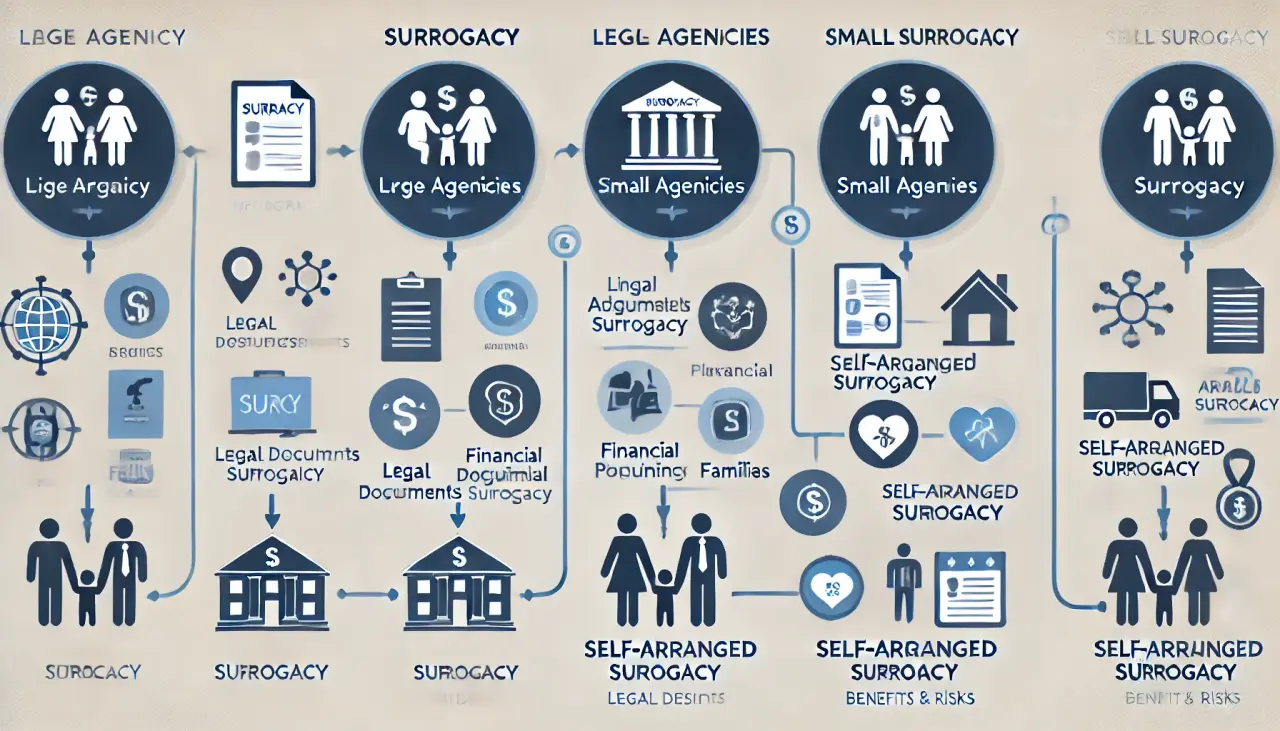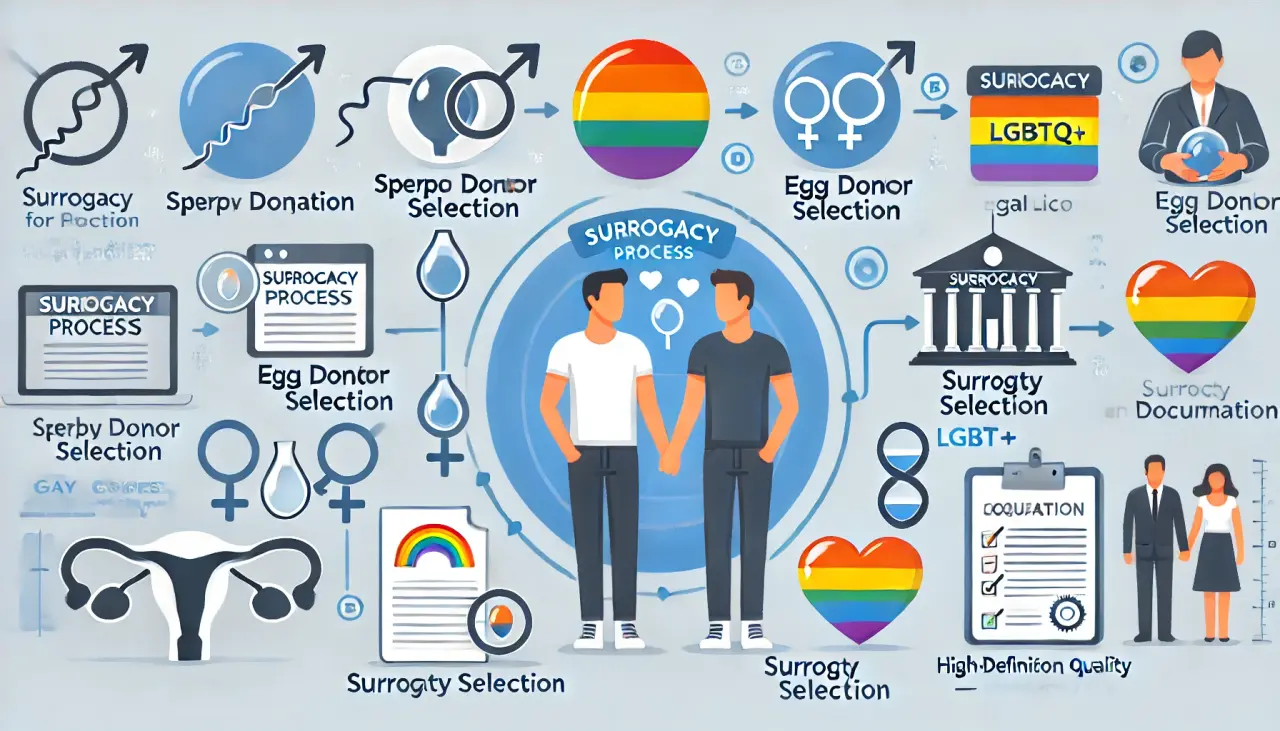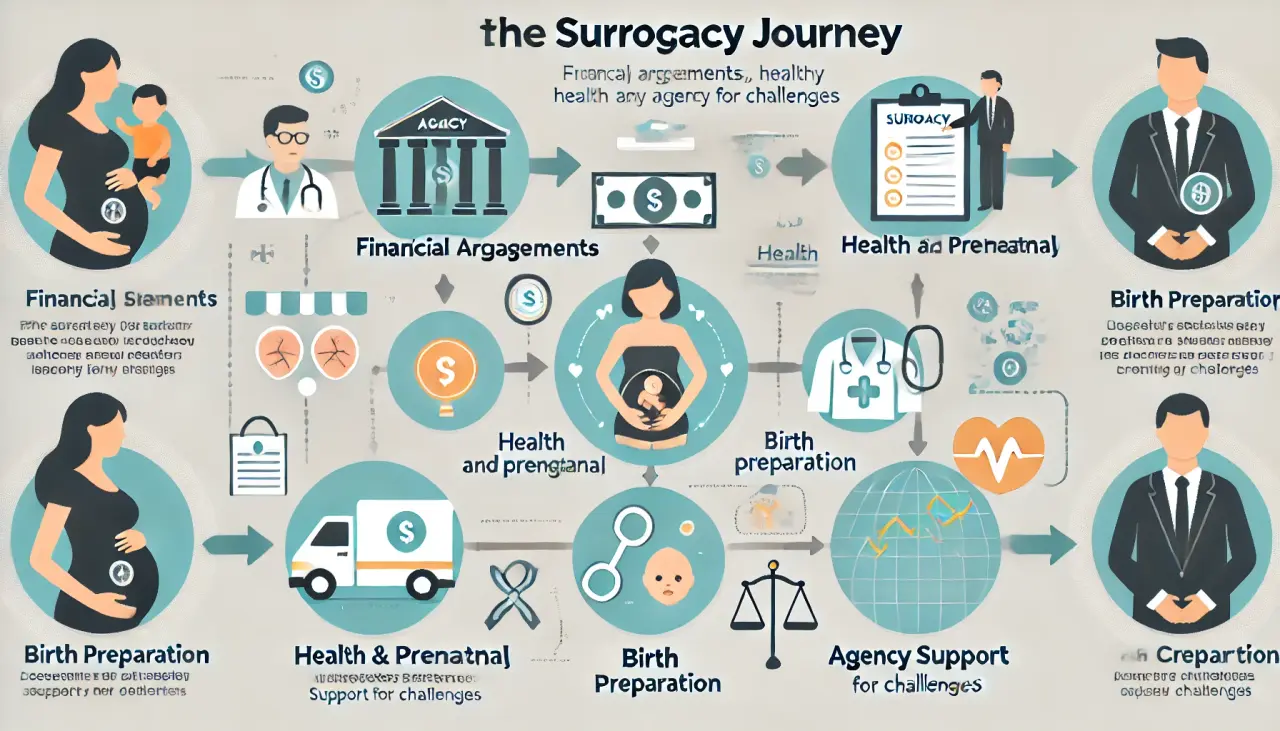
What is Surrogacy? Understanding the Surrogacy Process and Journey for Intended Parents
If you’ve been struggling to conceive, even with infertility treatments, or if you’re part of a gay couple looking for alternative paths to parenthood, surrogacy could be the answer. Surrogacy involves a third party’s reproductive system to help conceive and carry a baby to term. A surrogate mother is a woman who carries the baby for another individual or couple, and after birth, the child is handed over to the intended parents. This article explores the surrogacy process, including what is surrogacy, how to choose a surrogate, and the journey that awaits intended parents.
1. What is Surrogacy? Surrogacy Explained
There are two primary types of surrogacy: traditional surrogacy and gestational surrogacy. Here’s how they differ:
- Traditional Surrogacy: In this type of surrogacy, the surrogate mother uses her own egg, which is fertilized by sperm through artificial insemination or IVF. Since the egg is the surrogate’s, the child is genetically related to her.
- Gestational Surrogacy: With gestational surrogacy, the surrogate carries an embryo created using the egg and sperm of the intended parents (or donors). The surrogate has no genetic relation to the child. This method is now the more common route for surrogacy journeys due to its reduced legal complexities.
The surrogacy process generally spans 12 to 14 months, but in some cases, it may take up to 24 months, depending on various factors.

2. Choosing a Surrogate Mother: What to Look For?
When considering surrogacy, you need to choose the right surrogate. If you’re not planning to ask a family member or friend, you can turn to a surrogacy agency for help. Here are some important factors to consider when choosing a surrogate mother:
- Age and Experience: Surrogates should be at least 20 years old and have had a successful pregnancy in the past.
- Medical and Psychological Screening: It’s essential that surrogates undergo thorough medical and psychological evaluations to ensure they are physically and emotionally prepared for the surrogacy journey.
- Compatibility: Clear communication and mutual understanding with your surrogate are vital for a smooth experience.
The surrogacy journey is deeply personal, and good communication with both the surrogate and the agency will help ensure a positive experience.

3. How to Choose a Surrogacy Agency?
The choice of working with a surrogacy agency or arranging surrogacy independently is an important one. Surrogacy agencies provide various services, from medical and legal advice to counseling and emotional support. Depending on the size and resources of the agency, their offerings may vary:
- Large Surrogacy Agencies: These agencies typically offer comprehensive support, including legal services, financial advice, psychological support, and medical care for the surrogate mother.
- Smaller Surrogacy Agencies: While often more affordable, smaller agencies may only provide certain services and leave other aspects of the process, like medical or legal decisions, to you. Be prepared to take on more responsibilities in these cases.
- Self-Arranged Surrogacy: Some intended parents prefer arranging the process themselves, often by asking a friend or family member to serve as the surrogate. Though this can be less expensive, it comes with higher risks, including legal complications.
Choosing the right surrogacy agency is critical for navigating the surrogacy process, especially for same-sex couples or international parents.
4. Screening a Surrogate Mother: What Information is Needed?
Screening a potential surrogate involves gathering a variety of medical, lifestyle, and personal information to ensure she is a suitable candidate. Essential information to review includes:
- A detailed medical and reproductive history
- Blood test results, including blood type and STD screenings
- Lifestyle habits, including the surrogate’s use of tobacco, alcohol, and drugs
- Height, weight, and other health indicators
If you are using egg or sperm donors, those candidates should also undergo similar screening processes to ensure the health and success of the surrogacy journey.

5. Navigating the Surrogacy Process for Gay Couples
For gay couples seeking surrogacy, there are specific considerations that may differ from those of heterosexual couples. What is the surrogacy process for gay couples? This journey typically includes both sperm donation and the use of a surrogate. It may involve additional legal steps, such as second-parent adoption or establishing legal parentage through court orders, especially in regions where parental rights laws are complex.
- Legal Documentation: Legal counsel is crucial to ensure the rights of both parents are recognized from the moment of birth.
- Communication with the Surrogate: As with all surrogacy journeys, clear and consistent communication with the surrogate is essential for creating a successful and smooth process.
For gay couples, understanding the surrogacy process and ensuring that all legal matters are in place before the baby is born can help avoid complications in securing parental rights.

6. Seeking Guidance During the Surrogacy Journey
Throughout the surrogacy journey, maintaining communication with your agency is critical. The agency will guide you through the following areas:
- Payment and Financial Arrangements: Surrogacy is expensive, and having clear financial plans will help avoid stress.
- Health and Medical Monitoring: Regular updates on the surrogate’s health will keep you informed and ease any anxiety you might have.
- Prenatal Care and Birth Preparation: The agency will help arrange prenatal appointments and assist in preparing for the baby’s arrival.
- Handling Unexpected Issues: Most surrogacy journeys progress smoothly, but the agency is there to help navigate any unexpected challenges.
Conclusion
In conclusion, surrogacy is a complex and emotional process that requires careful thought and consideration. From understanding what is surrogacy to selecting the right surrogate and navigating legal steps, the surrogacy journey offers a path to parenthood for those unable to conceive naturally or for same-sex couples seeking to start a family. It’s essential to work with a trusted agency, communicate clearly with your surrogate, and fully understand the process before embarking on this life-changing journey.